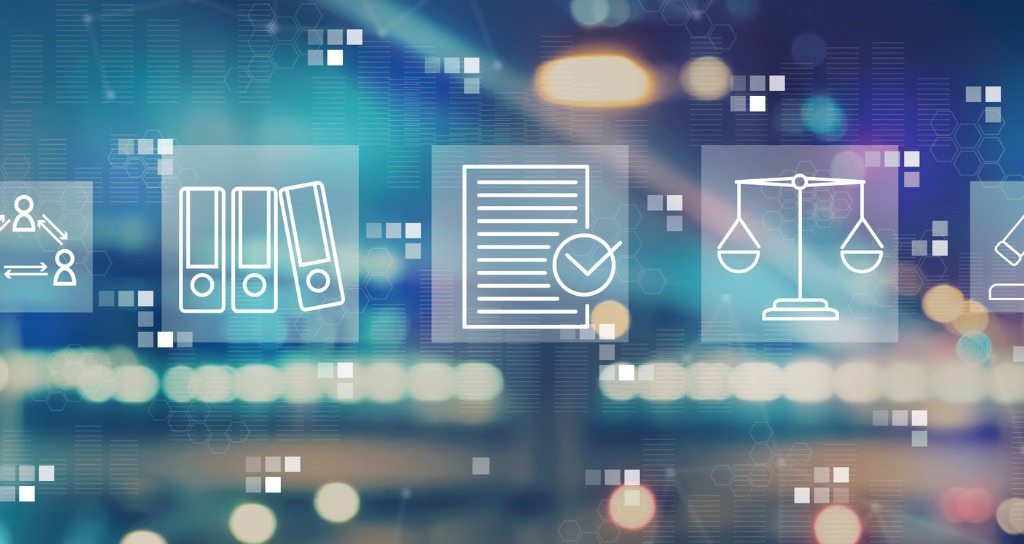August 1981 marked the 40th anniversary of the IBM PC. Not long after, lawyers began to adopt the invention for their practices. Yet, despite the decades of law office technologization and — especially since COVID-19 — the centrality of tech to the practice of law today (does anyone send paper letters still? and aren’t Zoom meetings convenient?), a lawyer’s duty of technological competence has yet to become universal.
That may have just changed in Ontario.
WORSOFF v MTCC 1168: A Declaration of A Dutyof Technological Competence?
In the recent decision of Worsoff v MTCC 1168 et al, 2021 ONSC 6493, Justice Myers made the judicial declaration that has been a long time coming (at para 32(g)): “Counsel and the court alike have a duty of technological competency…”.
Until that declaration, neither the Law Society of Ontario (LSO) nor any prior Ontario decision had held that lawyers had such a duty. But it was only a matter of time before the courts imposed it, as Information Technology in law enters its fifth decade, and the COVID-19 pandemic stretches on with technology-based proceedings and transactions becoming normalized.
Earlier Hints of a Duty
Even before the pandemic, some Ontario courts had made pronouncements betokening a judicial expectation of lawyers’ technological competence, and an obligation to take advantage of technology.
Cass v. 1410088 Ontario Inc. 2018 ONSC 6959 was a costs decisions after the defendant’s successful summary judgment motion. Justice Whitten found the defence’s $900 legal research fee claim for case printouts to be excessive. If “artificial intelligence sources were employed”, His Honour noted, “no doubt counsel’s preparation time would have been significantly reduced”. Justice Whitten reduced the defendant’s disbursement claim by over 50%.
In a mirror decision to Cass, Justice Perell allowed a $1,323 disbursement for legal research using WestLaw in Drummond v. The Cadillac Fairview Corp. Ltd., 2018 ONSC 5350. Justice Perell observed that “computer-assisted legal research is a necessity for the contemporary practice of law and computer assisted legal research is here to stay with further advances in artificial intelligence to be anticipated and to be encouraged.”
In Arconti v. Smith, 2020 ONSC 2782, Justice Myers was faced with plaintiffs who were objecting to conducting examinations by videoconference. His Honour would have none of it and decided against the plaintiffs. Presaging his declaration in WORSOFF, His Honour observed in his distinctly colourful, authoritative manner (at paras 19 and 33):
[…] “It’s 2020”. We no longer record evidence using quill and ink. In fact, we apparently do not even teach children to use cursive writing in all schools anymore. We now have the technological ability to communicate remotely effectively. Using it is more efficient and far less costly than personal attendance. We should not be going back. […]
In my view, in 2020, use of readily available technology is part of the basic skillset required of civil litigators and courts. […]
In Real One Realty Inc. v. Jing Liu, 2020 ONSC 8190, released only a few months after Arconti, Justice Steele cited Justice Myers’ words when she ordered a trial to proceed by videoconference over the objections of plaintiff’s counsel. Her Honour observed (at para 15):
[…] I’m not happy ordering a virtual trial on a party against their will. However, we must find a way in these times to keep matters moving. Unfortunately for all of us, we don’t know how long these unusual times may last. We have to embrace technology in the current environment. This may mean doing things through technology that are outside our comfort zone. Through this pandemic we have all had to make significant changes, and technology has played a very significant role in this regard – businesses had to move many or all of their employees to work remotely, many universities are operating their classes online, and courts have continued to hear many matters through platforms such as “zoom”.
A Duty in Most of Canda, Only Guidelines in Ontario
Lawyers in most of Canada have a positive duty of technological competence.
In 2019, the Federation of Law Societies of Canada’s Model Code of Professional Conduct added technology to its criteria for competence in 2019, as follows:
3.1-2 [4A] To maintain the required level of competence, a lawyer should develop an understanding of, and ability to use, technology relevant to the nature and area of the lawyer’s practice and responsibilities. A lawyer should understand the benefits and risks associated with relevant technology, recognizing the lawyer’s duty to protect confidential information set out in section 3.3.
[4B] The required level of technological competence will depend upon whether the use or understanding of technology is necessary to the nature and area of the lawyer’s practice and responsibilities and whether the relevant technology is reasonably available to the lawyer. In determining whether technology is reasonably available, consideration should be given to factors including:
(a) The lawyer’s or law firm’s practice areas;
(b) The geographic locations of the lawyer’s or firm’s practice; and
(c) The requirements of clients.
As of this writing, the Canadian Bar Association and 7 provinces and territories have adopted the FLSC provision,1 while two provinces have imposed a similar duty.2 Only Ontario, Prince Edward Island, British Columbia, and Nunavut do not define competence to include technology.
In Ontario, the LSO has released a Practice Management Guideline on technology, but it does not impose a duty on lawyers. The Guideline says only that lawyers “should have a reasonable understanding of the technologies used in their practise or should have access to someone who has such understanding.” It also makes some uses of technology mandatory, such as the electronic registration of real property, or courts’ and tribunals’ electronic filing systems.
South of the border, 39 US states have adopted the 2012 American Bar Association’s amendment to Comment 8 of its Model Rule of Professional Conduct 1.1 (Duty of Competence), which reads as follows:
To maintain the requisite knowledge and skill, a lawyer should keep abreast of changes in the law and its practice, including the benefits and risks associated with relevant technology, engage in continuing study and education and comply with all continuing legal education requirements to which the lawyer is subject.
Conclusion: The Emergent Duty in Ontrio
It was in this context that Justice Myers in Worsoff addressed — as he had in Arconti — plaintiff’s counsel who was reluctant to conduct examinations virtually. “It’s now 2021,” stated His Honour, paraphrasing his words in Arconti, “Virtual proceedings have proven to be one of the first significant enhancements in access to justice since Hryniak was decided in 2014″ (at para. 35).
Since releasing Worsoff, Justice Myers elaborated on the duty of technological competence in the December 10, 2021 episode of The Yunusov Question podcast (available in audio and text here).https://lawto.ca/justice-fred-myers-on-becoming-a-judge-lawyer-competency-electronic-trials-and-changes-to-come/ Some choice comments by His Honour from the podcast:
[…] there is a federation of law societies in Canada, which is the group of all the law societies across the country. And they have a draft model rules of ethics. And in it, there is a specific rule of ethics that lawyers shall be technologically competent. Part of competency is technology. Now that doesn’t mean you have to be an expert at using every single program, but you have to keep up and you have to be able to manage in the real world. Ontario is one of the only provinces that has not made that provision part of our law. So I hinted at it in Arconti, that you were referring to a minute ago. About a month ago, I said it more specifically in a case called Worsoff, where I said there is a duty of technological competency, but it doesn’t come from the rules of ethics because it’s not there yet.
[…] And sort of you have to understand that we are the most conservative profession. It is almost impossible to turn the ship. And certainly my little voice, I’ve been told very clearly by the powers that be in my court, that we don’t make law, we’re just the superior court. We’re not the court of appeal. So I’m one voice among 325. And if people will… What I try to do is get conversations going and be part of a conversation.
Because obviously I don’t make the final decisions on any of these matters and nor should I. But we have a very conservative profession.[…]
The benefits of technology in the legal field are limitless. From access to justice, greater efficiency, and lower costs for clients, tech is plainly here to stay. By declaring a lawyer’s duty of technological competency, Justice Myers has, in our view, done both the profession and the public in Ontario a service.
We can only hope that the LSO will follow suit, adapt to changing times and ensure that its members offer services tailored to the demands of the times, be they in a courtroom or before a screen.
This article was originally published by The Lawyer’s Daily (www.thelawyersdaily.ca), part of LexisNexis Canada Inc.
Footnotes
1. Nova Scotia (Code of Professional Conduct); Newfoundland (Code of Professional Conduct); Manitoba (Code of Professional Conduct); Saskatchewan (Code of Professional Conduct); Alberta (Code of Conduct); Yukon (Code of Conduct); Northwest Territories (Code of Professional Conduct).
2. Quebec ( Code of Professional Conduct of Lawyers – “21. A lawyer must engage in his professional activities with competence. To this end, he must develop his knowledge and skills and keep them up to date.
For the purposes of the first paragraph, the knowledge and skills related to information technologies used within the scope of the lawyer’s professional activities are part of the knowledge and skills that a lawyer develops and keeps up to date.”); New Brunswick (Code of Professional Conduct – adopted the language of [4A] but not of 4[B]).
The content of this article is intended to provide a general guide to the subject matter. Specialist advice should be sought about your specific circumstances.











